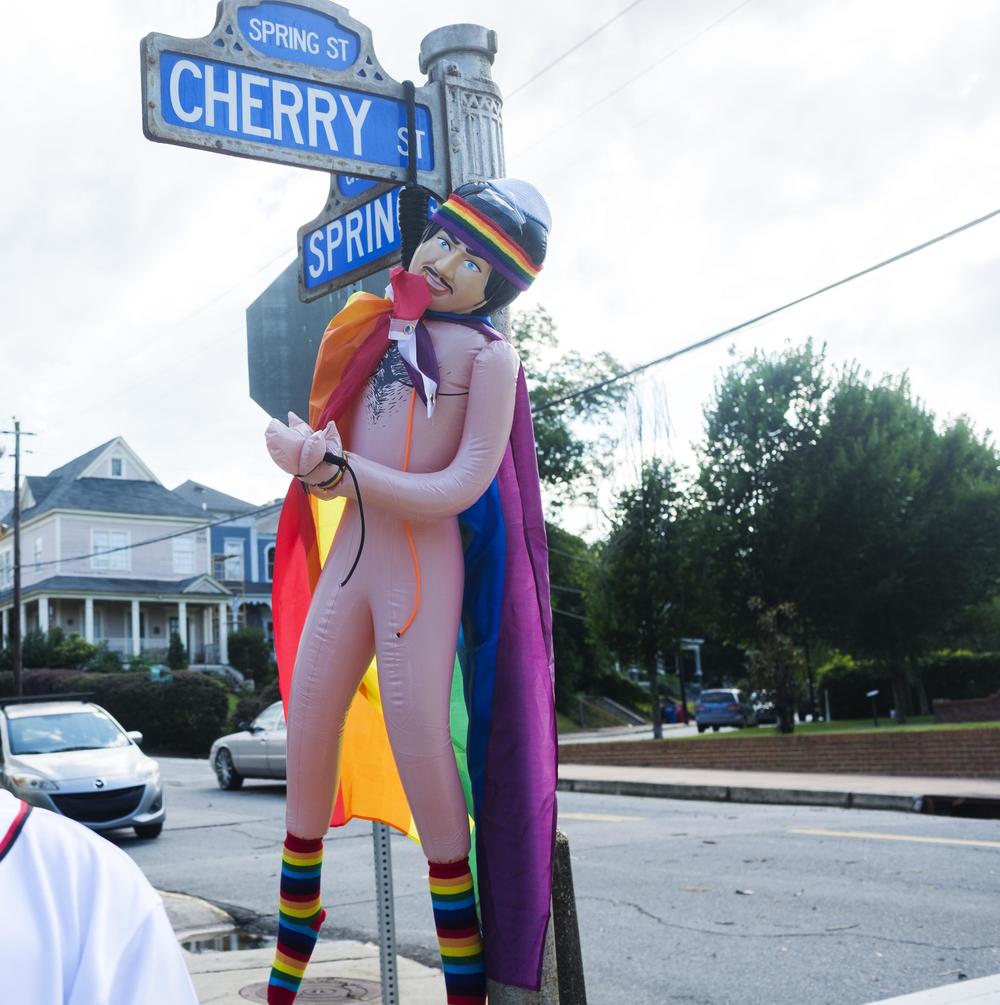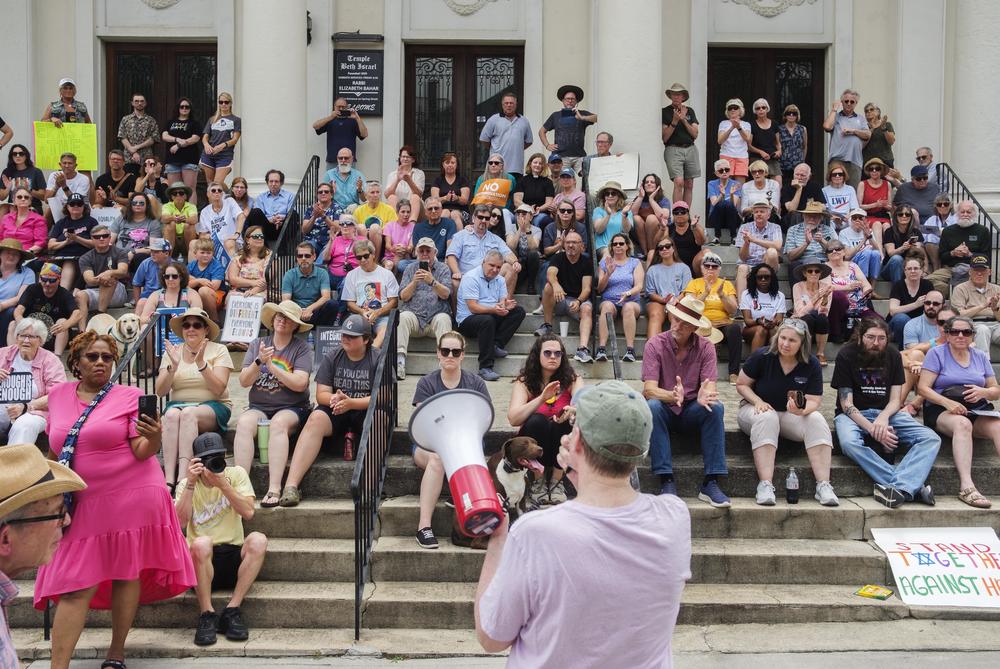
Caption
The effigy neo-Nazi actors hung from the street sign next to Macon's Temple Beth Israel on June 23.
Credit: Grant Blankenship/GPB
A neo-Nazi group angered residents of Macon, Ga. across two days of action in front of the city’s 164-year-old synagogue.
It began Friday, near the start of the Jewish Sabbath. About a dozen neo-Nazis proclaimed both antisemitic and anti-LGBTQ rhetoric on the sidewalk at the foot of the steps leading to the front door of Macon’s Temple Beth Israel.

The effigy neo-Nazi actors hung from the street sign next to Macon's Temple Beth Israel on June 23.
A caricature of a Jewish man wrapped in a Pride flag hung in effigy from a street sign. Residents of the tight knit downtown neighborhood of historic homes said they had never seen a display like it, even those who had lived there for forty years or more.
Temple congregants could be seen peeking through the doors before the leader of the organization the Anti-defamation League and the Southern Poverty Law Center listed as a hate group was arrested by the Bibb County Sheriff’s Office on misdemeanor disorderly conduct charges. He was released hours later on $910 bond.
The next day, hundreds of Maconites filled the steps to the temple doors in a show of support for the Jewish community.
Deborah Adler was a part of the Saturday crowd. She said her mother, a Holocaust survivor, could never understand why Americans tolerate antisemites. It was something they would debate.
“I said, ‘Well, you know, in America, unfortunately, even those that have hate speech are allowed to speak,’” she remembered. “But we must answer back. We must fight back the hate.”
Jim Crisp, a longtime leader in Macon’s arts community, organized the gathering. Through a megaphone, he told the crowd he was incensed when he saw the hate group’s actions on social media the day before.
“Because what I saw was so horrible. And so frightening,” he said. What he said next drew cheers.
“And I thought, ‘Not here. Not in Macon. Not in my town.’”
Later, Crisp was cut off mid-sentence as the hate group’s leader returned to the Temple.
Police reacted immediately as the crowd erupted into jeers of “Not here!” Law enforcement personnel, including Bibb County Sheriff David Davis, put themselves between those gathered to support Temple Beth Israel and those there to denigrate it.
Once the rage eased, the people held hands and encircled the temple until the small hate group moved on. The neo-Nazis would be spotted later in the day at another temple in Cobb County in Atlanta’s northern suburbs.

Macon residents gathered on the steps of Temple Beth Israel in support of the Jewish community Saturday a day after a hate group targeted the 164-year-old congregation.
Rabbi Larry Schlesinger once led Temple Beth Israel and served on Macon’s city council. He said he was not surprised by the turn of events.
“Because things like this are happening all over, and nobody, no community is immune from the threat,” he said. “So, you know, we just have to recognize the reality of it and deal with it in every legal way that we are able to do.”
The way the hate group expressed itself may yet cause them legal trouble.
Along with the action outside the temples, the group blanketed neighborhoods in Macon, nearby Warner Robins and later Cobb County in antisemitic and anti-LGBTQ literature packaged in Ziploc bags with what looked like rat poison but which police in Warner Robins clarified were small pellets of pine wood.
“It certainly looks like rat poison,” Schlesinger said. “And you know poison against the Jewish people is something that really hits hard at home. That's what the death camps were all about.”
Could the hate group’s hanging an effigy from the street post Friday also be seen as a hate crime?
Macon-Bibb District Attorney Anita Howard said she would look at the day’s actions in the context of the state’s new domestic terrorism law.
In an emailed statement, US Attorney for Georgia’s Middle District Peter Leary condemned the actions of the hate group but said he could neither confirm nor deny any intent to pursue federal hate crime charges.